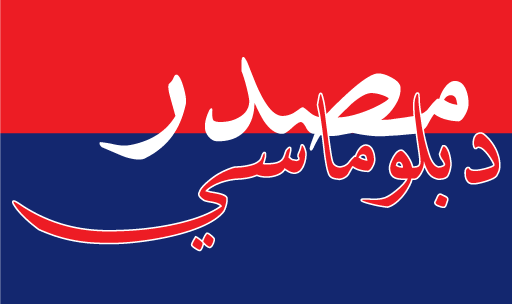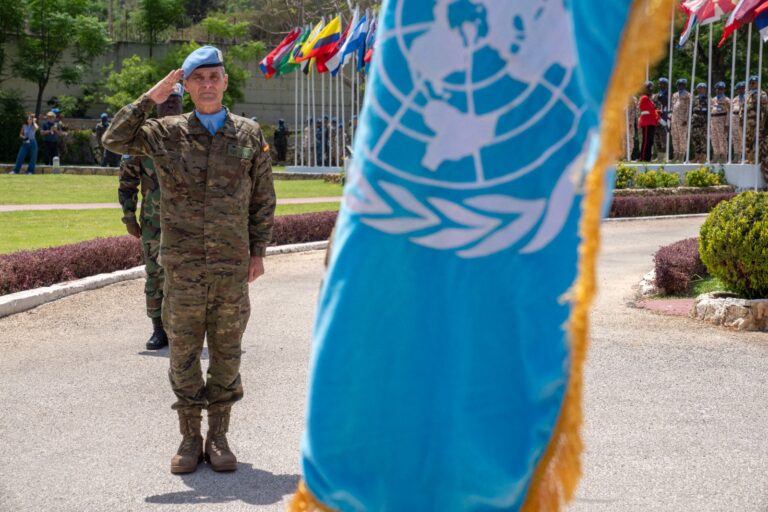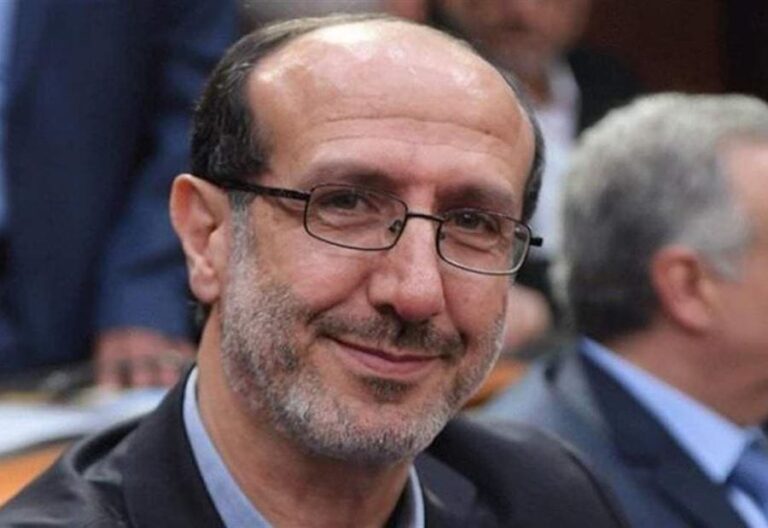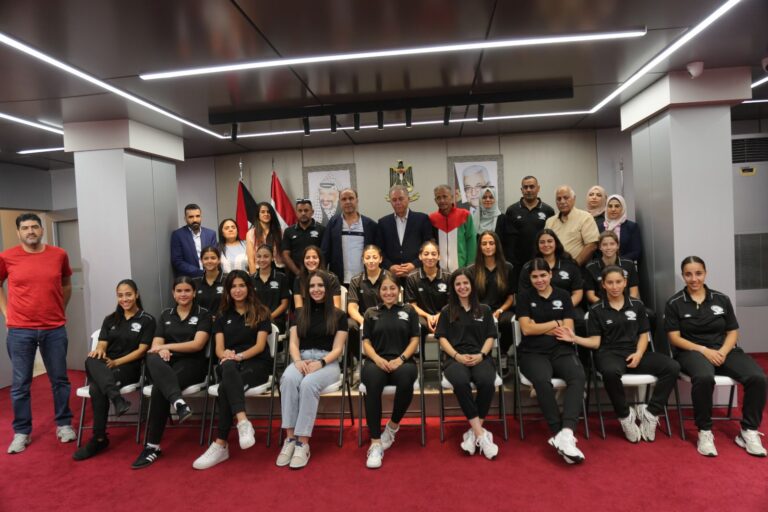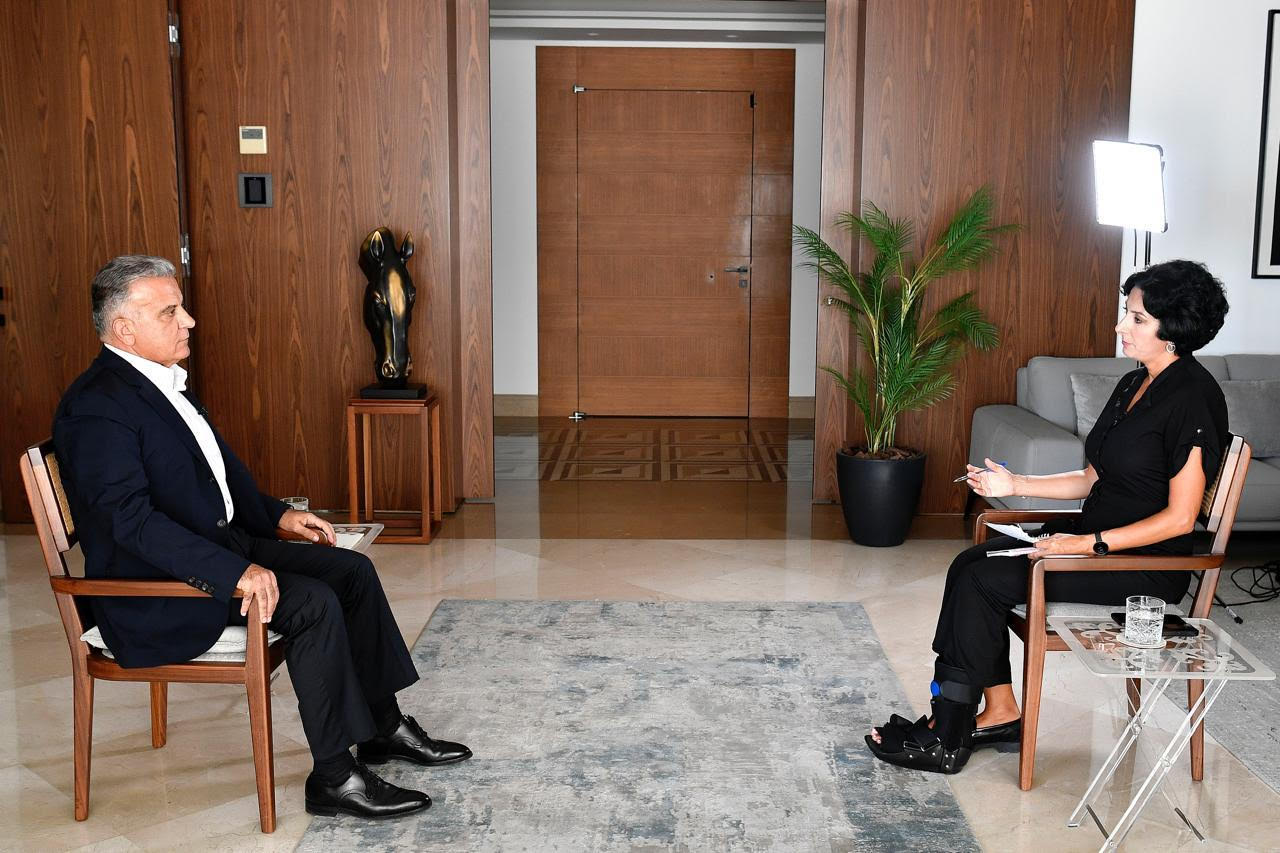
Masdar Diplomacy
The British Broadcasting Corporation’s BBC World News channel conducted an interview with Major General Abbas Ibrahim through its correspondent in Beirut and the Middle East, Nafiseh Kohnavard. The interview addressed the war in Gaza and southern Lebanon, the possibilities of military escalation in the region, the potential involvement of countries like Iran in the conflict, and the background of the U.S. stance against expanding the scope of the war. In the interview, which started broadcasting in various news formats in English, Arabic, and Persian, Major General Ibrahim revealed that any Israeli threat to Hezbollah will ignite the region and that Iran will intervene because it will not allow the destruction of Hezbollah’s infrastructure or its elimination, which would pose a significant danger.
Hochstein Requests Mediation
At the beginning of the interview, Major General Ibrahim answered a question about a call from U.S. Presidential Envoy Amos Hochstein at the start of the October 7th war in Gaza, revealing that the American mediator had requested his help to “ease tensions between Israel and Hezbollah.” Major General Ibrahim said, “I felt that Mr. Hochstein was worried because he knows very well that the Israelis cannot fight on two fronts, so he wanted to ease the tension across the border.” (…).
Future of the War
In an analysis of the future situation in Gaza, Major General Ibrahim pointed out that “Netanyahu, strategically, has not been able to defeat ‘Hamas’ or eliminate it, and he is looking for a victory. He knows very well that the greatest victory is the defeat of ‘Hezbollah,’ so he is trying to drag the Americans into the battlefield, knowing that after the war ends, he will be held responsible, and the Israeli establishment will pursue him as the Prime Minister responsible for October 7th.” He noted that Netanyahu has put Israel in a critical position in front of the international community. “After nine months, Israel is in a very bad situation, and they can no longer cover it up even if there are people working for them and buying off the media. What Israel is doing in Gaza is a real massacre and genocide. Netanyahu is trying to achieve a victory so that he won’t be held responsible after the war and to appear as a hero to his people. I can guarantee that he will not achieve this goal at all. If he wants to attack Lebanon, his army is not ready for it, and I don’t think the Americans want that or are ready to support him as he wishes.”
U.S. Support for Israel
Regarding the possibility of U.S. support for Netanyahu if he wants to open a front with Lebanon, he said: “I am sure they will support Israel but not in the way the Israelis want. In the end, there are elections, which are very important for the Americans. Dragging them into this war means that Biden will not be able to ensure his stay in the White House. They have complications, and they are not obligated to work with Israel to that extent.”
It Will Be a Regional War
Regarding the possibility of an all-out regional war, Major General Ibrahim said: “It will not happen because the Americans are fully convinced that if that happens and Israel launches a war against Lebanon, Iran will intervene, and for the first time in history, Iran will intervene with its forces and its proxies in the region. It will turn into a regional war that does not serve American interests.” In response to a question, he added: “Yes, I am sure that Iran will participate in a full-scale war if it feels that Hezbollah is in a critical situation. The United States and Iran operate on the brink of confrontation and then return to settlement; neither has an interest in war. A regional war is against American interests. In this way, Russia will also participate in the war.”
Hezbollah’s Capabilities
Regarding the possibility that Hezbollah’s capabilities, demonstrated in this war, could turn from a deterrent to a double-edged sword, Major General Ibrahim said: “When Hezbollah sent the ‘Hoopoe’ to the occupied Palestinian territories, this operation was a message to the Israelis to think a hundred times before taking any action. However, part of the Hoopoe’s message lies in the fact that Mr. Hochstein was in Lebanon, and perhaps he had something on the table, and this message was used as part of the Lebanese negotiations, given the sense of confidence and to show that we are strong enough not to allow anyone to impose their will on us. I remember well when we worked on the maritime border issue, it was the last day when we received the answer from Amos, and that was because of Hezbollah’s drones over Qarish. I won’t delve into this part of history, but this is how ‘Hezbollah’ operates.”
Regarding the solution for the return of settlers to northern Israel, Major General Ibrahim said: “The solution is very simple: a ceasefire in Gaza and moving towards a permanent ceasefire. The Israelis want their hostages and want to resume killing after that, as they did when they got a truce a few months ago and then resumed killing innocents the next day.”
Resolution 1701
Regarding the U.S., French, and international decision to push Hezbollah beyond the Litani River and insist on Lebanon implementing Resolution 1701, Major General Ibrahim said: “Resolution 1701 does not talk about Lebanon; we had a problem with Israel in 2006 that led to a war, and this resolution was issued as a result. Therefore, its implementation must be imposed on both parties. Are the Israelis ready to stop violating our airspace, waters, and land? If they are ready, I think Lebanon is ready. We will implement the resolution if Israel stops its violations, which exceeded 30,000 before the last war broke out and are documented in UN records. We are not the ones violating Resolution 1701; if Hezbollah violates this resolution, it is a reaction, and to stop that, both parties must be forced to respect Resolution 1701.”
He added: “When the United Nations adopted Resolution 1701, it adopted it in a balanced way between the two parties. There is a party that does not want to respect the balance established by Resolution 1701, and therefore must bear the responsibility.”
Targeting Hezbollah Cadres
Regarding the targeting of Hezbollah leaders and why the party did not respond similarly but only targeted military objectives, he said: “Israel is in a very bad situation, and when you go to war, it does not mean counting your casualties or losses, but rather what objectives you achieve first (…).” When asked about the strong intelligence of the Israeli army, which led Mr. Nasrallah to warn his members to abandon their mobile phones, Major General Ibrahim said: “I will not tell you the means that the Israelis use to target these individuals. I might have an idea, but I will not mention it now. Some of the mistakes that people make lead to these losses. Nevertheless, I believe that Hezbollah also, as the videos that were published showed, has many targets when talking about a full-scale war.”
When asked what would happen if the Israelis decided to launch a ground invasion into Lebanon, what kind of war we would witness, Major General Ibrahim answered: “Mr. Nasrallah said it, who can guarantee that ‘Hezbollah’ will not invade the other part of the territories? No one can guarantee that, and no one knows what ‘Hezbollah’ is planning. We must be patient and wait, but I do not see a full-scale war coming because the Americans do not want this war to break out or get involved in a regional war because it does not serve their interests. Without America, Israel cannot take any action.”
Iranian Attack and Changing Border Conflict
Regarding the Iranian attack on Israel and how it changed the nature of the conflict on the borders, Major General Ibrahim said: “I am convinced that after Iran’s attack on Israel and the drones and missiles it sent, Hezbollah changed its tactics. This is related to Hezbollah’s military level.” When asked what he noticed, he said: “I noticed that Hezbollah’s capabilities, especially in the technical field, improved after Iran’s attack on Israel, and the deterrence space between Israel and ‘Hezbollah’ has become zero, as the Israelis themselves say. This poses a danger to Israel, and Hezbollah reacts to any attack against it. Hezbollah penetrates deep into Israeli territory just as the other party does.” He pointed out that “Hezbollah has not yet used all its capabilities.”
Regarding Israeli air superiority and whether it will break the existing balance, he said: “This balance will continue. Hezbollah sent a small message to the Israelis in this context, and perhaps for this reason, they have reduced their air attacks.” He added: “No one knows what Hezbollah’s full capabilities are, but the Israelis can read these messages very clearly.”
Regarding the Telegraph Report on Hezbollah Storing Weapons at Beirut Airport
Major General Ibrahim said: “I am certain they do not need to store weapons at the airport. If they want to fight the Israelis, they store weapons in southern Lebanon or elsewhere, why store them at the airport? This is a big question, and we need to think logically. The Israelis are setting the stage in case they need to attack some sensitive places in Lebanon.” When reminding that the Israelis had previously attacked the airport, he said: “Yes, but the situation is different now. If they hit Beirut Airport, the airport in Israel will also be hit. Therefore, the Israeli must think this way; they cannot harm Lebanon and attack it without being harmed themselves.”
Role of the Lebanese Army
When asked about the role the Lebanese army can play and whether it is capable of putting an end to Hezbollah, General Ibrahim replied: “If we had an army that could defend Lebanon with its means, we wouldn’t need Hezbollah or any other force to defend us. I am from the south, and we have suffered a lot since 1948 until yesterday, and no one supported us. No country in this world has supported our army throughout history to enable it to defend us. The Israeli used to enter our villages and demolish our houses, and no one deterred him, not even the Lebanese army.” He added: “I will be the first to demand and fight for the disarmament of Hezbollah or any other force when we have an army capable of performing the task. We will be proud of that, that is, to have a national army defending Lebanon instead of sectarian forces, whether Sunni or Shiite or others. We want to have a state, but what is the meaning of a state if it cannot defend its people.”
Shiite Iraqi Forces in Lebanon
When asked about the possibility of Shiite Iraqi forces or Houthis coming to help Hezbollah in the event of a regional war, Major General Ibrahim said: “Yes, maybe, even if Hezbollah does not need military numbers, Iran might see itself as part of this war, and this would be very dangerous.”
